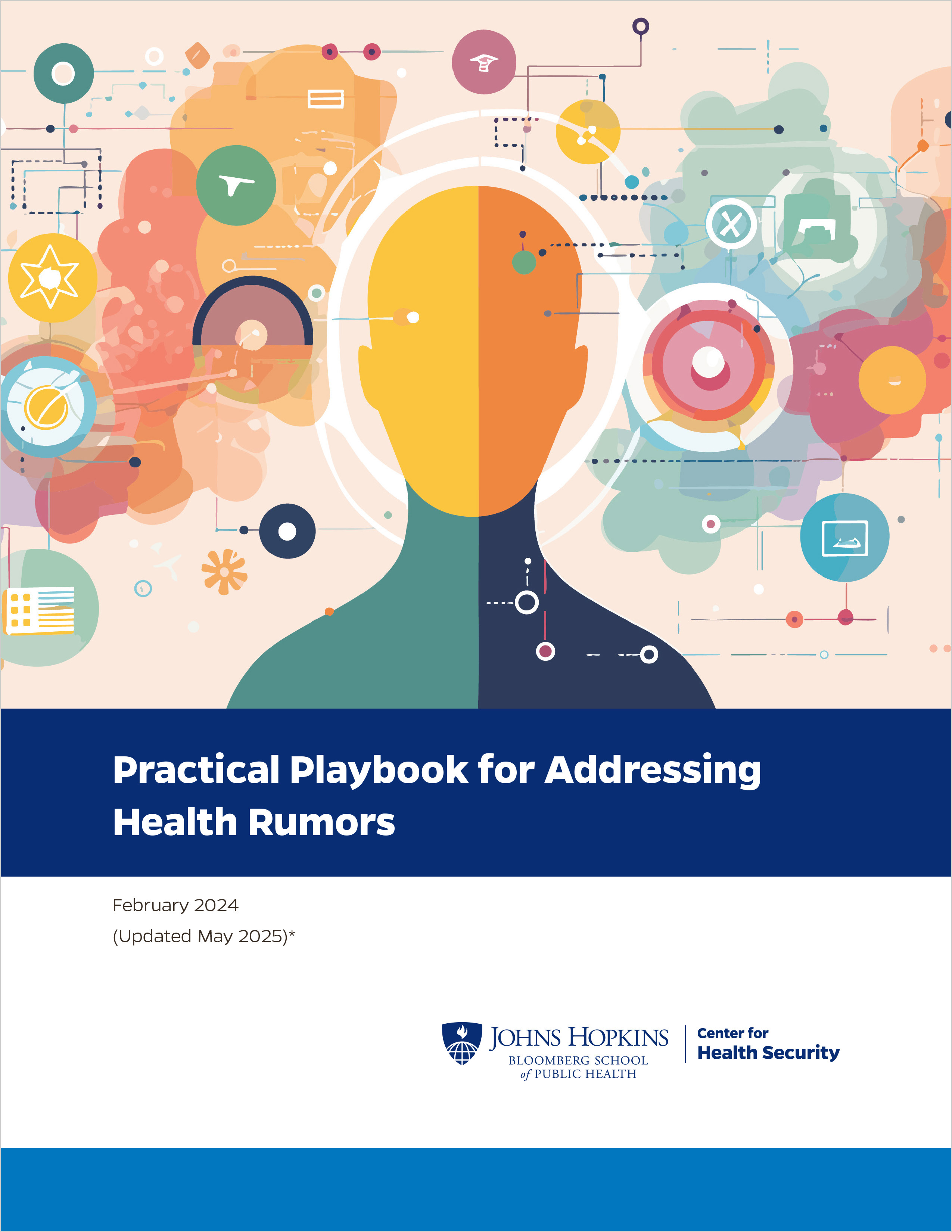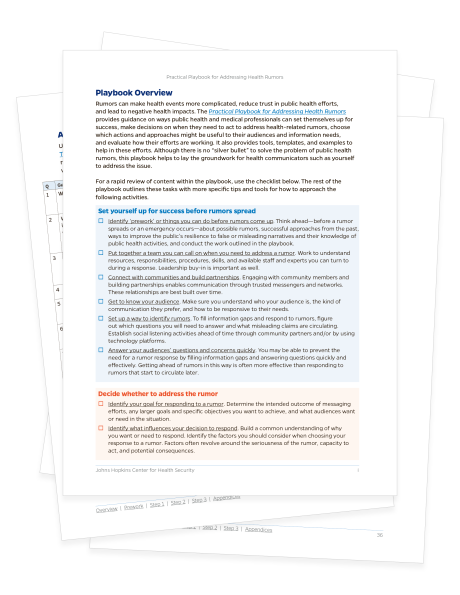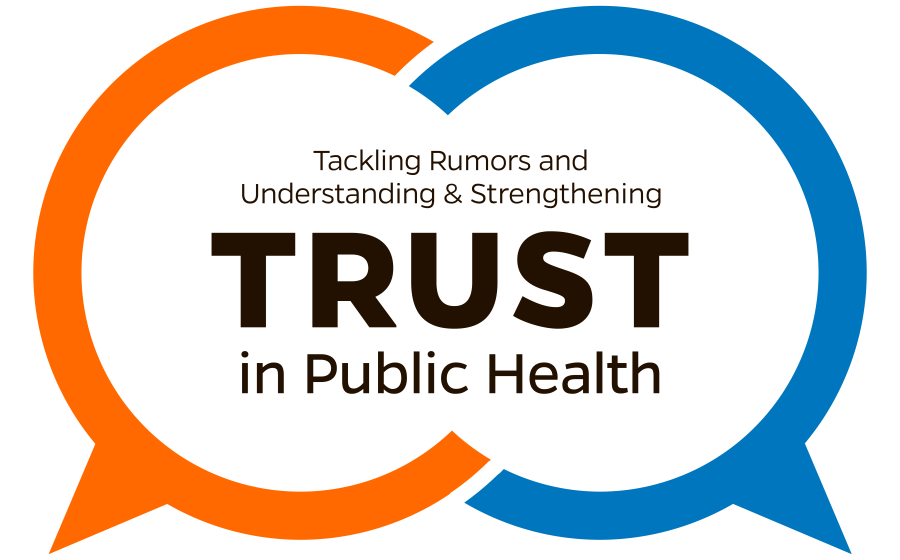
Practical Playbook for Addressing Health Rumors
Misleading rumors and purposefully manipulated messaging can make health events more complicated, reduce trust in public health efforts, and lead to negative health impacts. Public health professionals, medical professionals, and other health communicators lack consistent guidance on when they should step in to address rumors and false narratives related to public health issues and what actions they should take.

The Practical Playbook for Addressing Health Rumors takes a hands-on approach to help communicators recognize and respond to health-related claims and falsehoods. It provides detailed tools, checklists, templates, and examples written in plain language to support users in:
- preparing for health-related rumors
- deciding when to act to address rumors
- determining which actions to take to address misleading rumors
- developing relevant and timely messaging, and
- gathering feedback about those messages.
Key findings
The playbook emphasizes the following overarching points for consideration, in addition to sharing specific guidance.
Understand limitations. Understand limitations. Not all rumors warrant action, and even if communicators act, there is no guarantee it will successfully counter the spread of misleading content. Public health professionals should take stock of their limits and capacities when deciding whether to take action to address a rumor.
Use social listening to capture rumors. It is important to develop a system to recognize rumors and understand them when they come up. Formal social listening tools—like databases and programs that collect rumors and create insight reports—or informal methods—such as social media monitoring, community surveys, and community partner interactions—are useful strategies.
Fill information voids. People often have questions and concerns during an escalating public health issue. Prevent these information voids from being filled with misleading rumors or false narratives by proactively, swiftly, and directly addressing them whenever possible. When a situation is developing, acknowledge what is and is not known. Prioritize increasing people’s awareness of accurate health information and then pursue other actions to dispel misleading rumors.

Customize strategies to fit priority audiences. Different priority audiences have varying needs and beliefs. Therefore, one approach will not be adequate for all audiences. It is important to tailor the message development process, and communication goals and actions based on priority audiences. Customizing these approaches ensures efficient reach and uptake of messages and improves the likelihood of changing audience beliefs, practices, and behaviors.
Form strong partnerships. Each step of the playbook emphasizes the importance of building strong relationships with community partners, trusted messengers, and stakeholders that work with priority audiences. Partners may have a better understanding of circulating rumors, what priority audiences need, and how to develop effective messages for those audiences.
Have you implemented the Practical Playbook in your setting? We welcome your feedback! We also can train members of your organization on using the playbook. For feedback and inquiries, please email centerhealthsecurity@jhu.edu.
Learn more about the playbook
News Release: Johns Hopkins Center for Health Security
Podcast: Public Health on Call
Public Health on Call (Johns Hopkins Bloomberg School of Public Health): Episode 731 – A Playbook for Addressing Health Misinformation
Podcast: Public Health Review Morning Edition
Public Health Review Morning Edition (ASTHO): Episode 619 - Review Food Safety Policies, New Misinformation Toolkit
→ Approaches to counter misleading rumors
→ Addressing misleading rumors and false narratives based on rumor type
→ Practical Playbook for Addressing Health Rumors

